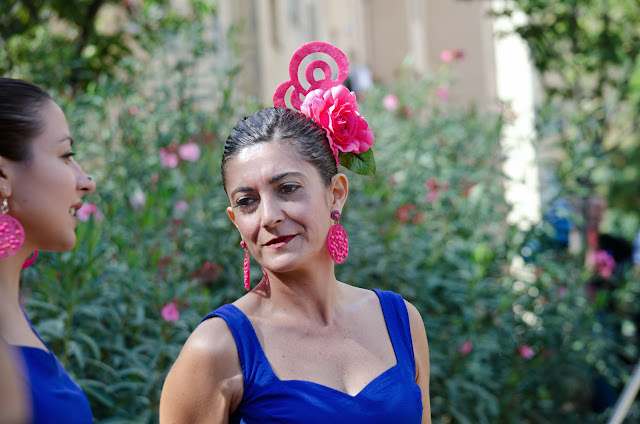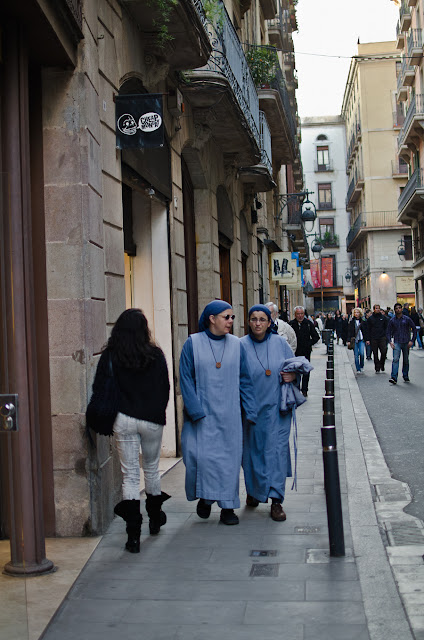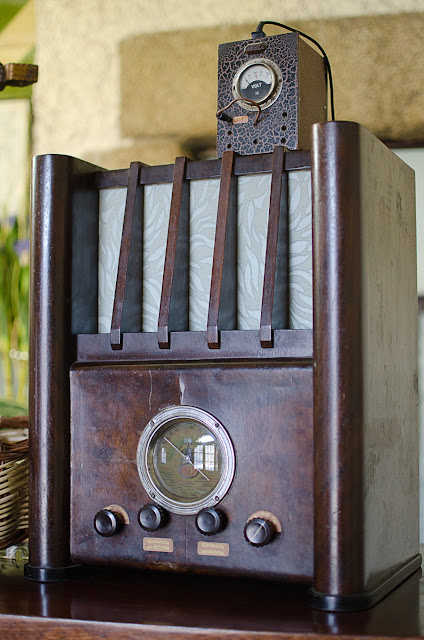
Catalan folklore feeds on ancient traditions lost in the common past of Mediterranean countries. Stick dance (Cat.
Ball de Bastons) was documented for the first time in Catalonia in XII a.d. and then more frequently after XVIII but it has always been part of this region's history besides the fact that it came either from the Greeks, some parts of Asia or even other regions in Europe. The exact origin is uncertain. In the
Basque country this dance is very extended as well for example and each region has their own peculiarities when it comes to dresses, sticks or ways of dancing. I am not going to enter into that. Maybe talking about
Bastoners or stick dancers as they are today, organized in groups or
colles as they have been for the last three centuries according to historical records is easier. To begin with, let me say that there are more than 100 colles all over Catalonia perhaps and about fifty are grouped under the direction of
Coordinadora de Ball de Bastons de Catalunya. They all have their own history that is normally linked to the town or neighborhood in which they live. The feet you see in the image, adorned with bells (Cat.
picarols) sewn into this piece of cloth called
camal or
turmellera belong to a stick dancer from a group called
Bastoners de Gràcia. I have more pictures of this
colla to be posted here. I just want to add for the moment that these colles may be made up of 8,10,12 or 16 dancers. One of them carries a flag with their symbols and the name of the group and usually they also have that name or badge embroidered in their clothes. They carry handkerchiefs around their necks and a colorful waistband over white pants and shirts. Besides they wear
espadrilles (Cat.
espardenyes). More to know soon.
Update 2025:
As the original post was short, I think some enhancement on the topic is necessary:
Living tradition
Catalan folklore carries echoes of shared Mediterranean customs, and the stick dance—Ball de Bastons—stands out as one of its most recognizable communal performances with local variants found across the region and beyond. As a collective ritualized “mock combat,” it blends rhythm, choreography, and symbolism to dramatize an encounter between two sides, while celebrating the skill and coordination of a tightly rehearsed group of dancers, or colla.
Origins and debates
The origins of Ball de Bastons are debated, with hypotheses that point to ancient Greek roots, prehistoric agrarian rites, or evolutions from medieval sword dances rather than a single traceable source. A frequently cited milestone places a stick dance at the 1150 wedding banquet of
Berenguer IV and Peronella of Aragon, often portrayed as the earliest documented mention of the tradition in Catalonia, though the link between that event and the modern form remains uncertain. More critical scholarship highlights a firmer documentary reference from 1558 in
Tortosa and cautions that mid‑20th‑century retellings overstated the 1150 claim, reminding readers that “first mentions” can be tricky in oral, popular arts.
Across Europe and Iberia
Ball de Bastons belongs to a wider family of European stick and weapon dances, with relatives such as the cossiers in Majorca, pauliteiros in Portugal, palotiau in Aragón, ezpatadantza in the Basque Country, and Spanish paloteo or troqueado, illustrating a shared vocabulary of percussive movement using short wooden sticks. This kinship helps explain why stylistic elements feel familiar across borders, even as Catalan colles maintain distinctive music, dress, and figures tied to local communities. The Barcelona scene is especially rich, with numerous active groups and a dense calendar of popular festivals that give the dance public visibility throughout the year.
What a colla looks like
Today’s Bastoners are organized in colles with their own badges, flags, and histories linking them to a town, neighborhood, or cultural center, and they typically perform in a coordinated set throughout a festa program or dedicated bastoner gathering. The Coordinadora de Ball de Bastons de Catalunya connects dozens of groups across the country and supports diffusion, preservation, and events that keep the tradition vibrant. As a national‑scope association, the Coordinadora has played a key role since the 1980s, and Catalan reference sources note around 90 registered colles alongside many intermittent or occasional groups.
Group sizes and formations
A classic set often fields 8 to 16 dancers arranged in two ranks, though other configurations—squares, circles, or extended lines—appear depending on local choreography and the figures selected for the performance. Variants in some exhibitions can scale further to 20 or 24, especially at ceremonial parades where multiple lines perform in coordinated blocks. Many colles carry a small standard or banner, and one dancer may raise it to mark a climax or the end of a piece, reinforcing the group’s identity in the public square.
Music and rhythm
Ball de Bastons is powered by crisp, driving melodies often built on straightforward duple meters, typically felt in 2/4, which support the precise accents of stick‑on‑stick clashes and the dancers’ steps. The instrumental nucleus varies by area, but traditional timbres such as the
gralla (shawm), flabiol (tabor pipe), and tamborí are common in Catalonia, creating a bright sonic profile that carries outdoors. The interplay between percussive sticks and melodic lines gives the dance its distinctive energy: the eye follows the figures while the ear tracks the cross‑rhythms of wood and wind.
Costume and symbols
Aesthetics matter in Ball de Bastons, where color coding often distinguishes the two “sides” of the encounter through scarves, sashes, and short overskirts that signal role and lineage. White shirts and trousers, a colored waistband, and espardenyes are typical, with a handkerchief at the neck and, crucially, bells sewn onto anklets—the camalls or turmelleres—so the footwork itself adds sparkle to the soundscape. The bells, known as picarols, transform leg movement into audible punctuation, which is beautifully captured in the close‑up of the dancer’s ankles from the Gràcia group that inspired this piece.
- White base garments, with colored sash and neckerchief tied to the colla’s palette.
- Camalls or turmelleres with picarols, turning steps into rhythmic accents.
- Espardenyes suited to street performance and quick, grounded footwork.
- A small flag or banderí borne by one dancer to emblemize the group.
Bastoners de Gràcia
The feet in the original image belong to a member of the Bastoners de Gràcia, a colla rooted in the Vila de Gràcia with deep ties to the neighborhood’s cultural centers and festive calendar. Founded in the early 1980s, with a first public performance in May 1982, the group has built a repertoire that draws on Catalan tradition as well as some Basque melodies and figures, showcasing the cross‑regional dialogue common in stick‑dance families. Their outfit features a red headscarf, a red faldellí with double black trim, a crossed checkered scarf, black or red sash, camalls with twelve bells, and circular alzina (holm oak) sticks, giving them a vivid and well‑documented visual signature on the streets of Gràcia.
Where to see them
In Barcelona, the Bastoners are highly visible, with 11 active colles in the city’s region and a signature Matí Bastoner every 24 September during La Mercè, the city’s major festival. Gràcia’s Festa Major is another natural home for stick dance processions, where the Bastoners de Gràcia perform alongside giants, devils, and the neighborhood dragon in a parade of popular arts that fills the streets and squares with music and color. Appearances by the Gràcia group have also reached beyond the barrio, including selected years at La Mercè and even the opening of the 1982 FIFA World Cup, a testament to how bastoner choreography adapts to large stages while keeping community roots.
Choreography and “mock combat”
A Ball de Bastons set reads like stylized conflict: two ranks face each other and advance, retreat, and cross in patterns that create anticipation before the sticks meet in crisp, rehearsed sequences. The “fight” is symbolic, with color‑coded sides and fixed figures that translate into public storytelling rather than improvisation, ensuring safety and clarity in crowded plazas. Within that framework, local steps, turns, and stick‑clash cadences differentiate one colla’s style from another, making neighborhood performances both recognizable and personal.
Craft and materials
Sticks are traditionally made of hard local woods like alzina (holm oak), which stand up to repeated impact and provide a satisfying, resonant crack when struck. Typical lengths hover in the 40–50 cm range with a comfortable thickness for secure grip and audible contact, though dimensions vary with local practice and specific figures. The tactile feel of well‑seasoned sticks, combined with the bounce and ring of bells from the camalls, is part of the dance’s multisensory appeal in close quarters on neighborhood streets.
Women in bastoner culture
Once restricted to men, Ball de Bastons has opened over the decades, and since the 1960s women have become steadily more visible, reshaping colla composition and the broader public image of the dance. This shift reflects both the vitality of popular culture and the organizational efforts of coordinators and colles to sustain the tradition by welcoming all who want to learn and perform. Today, audiences will encounter mixed groups throughout Catalonia, including in Barcelona’s most emblematic festival spaces.
Organization and continuity
The Coordinadora de Ball de Bastons de Catalunya brings together over 50 colles and facilitates meetings, training, and dissemination, creating a shared infrastructure for what is arguably the most widespread dance across Catalonia today. Catalan reference works estimate around 90 registered groups in recent tallies, while also noting many occasional colles that mobilize for specific events or anniversaries in their towns. This dual reality—stable year‑round teams alongside ad hoc formations—helps explain why Ball de Bastons remains omnipresent in local festa programs from the Pyrenees to the coast.
Learning and workshops
Beyond performances, training matters: workshops and formations organized within the bastoner community transmit technique, repertoire, and safe practice to new generations and curious neighbors. Such sessions cover core figures, stick handling, footwork, and the etiquette of ensemble movement, ensuring that the choreography remains legible in public spaces where dancers must adapt to uneven surfaces and dense crowds. The result is a living school spread across cultural centers, community halls, and plazas, rather than a single formal academy.
Gràcia’s bells, up close
Returning to the original photograph, the picarols sewn to the camalls are not mere decoration but an integral acoustic layer that tracks the dancer’s footwork beat by beat. The image from the Bastoners de Gràcia captures how the bells frame each step, translating ankle action into an audible shimmer that rides above the gralla and flabiol and ties the choreography together through sound as well as sight.
A tradition in motion
Ball de Bastons is both resolutely local and broadly Mediterranean, balancing the recognizable codes of a shared European stick‑dance family with the strong identities of Catalan colles and their neighborhood ties. Whether at La Mercè’s Matí Bastoner, Festa Major de Gràcia, or a small‑town meeting far from Barcelona, the clack of holm‑oak sticks, the bright call of the gralla, and the jingle of picarols announce a tradition that thrives by making the street its stage. In that soundscape, those anklets from Gràcia do more than shine—they ring out the living pulse of a dance that continues to gather people in step, in time, and in community.

![[enlarge]](https://blogger.googleusercontent.com/img/b/R29vZ2xl/AVvXsEhqs-pPPcWo_XXDEwaUjYSi4K-krQMd-r57ymWK6hECl8ZsXKxy42BzaTBB9olBh_XA2fkAITRAfldhtYkx8KKn8Ba_8-PdnaQVNF81Y7-S-NMafbdVMzgMFPm9SalwoTzkvTlXIA/s1600/Barcelona+Twin+Towers+-+oh-barcelona.com.jpg)


















![[enlarge]](https://blogger.googleusercontent.com/img/b/R29vZ2xl/AVvXsEgP__UQ2f7UNd8bX334xOZjywZpjZK5blKcKbFNtUeMJfPHhTI6zqk3XLVzk2wQjTKAEZ4crTfZaIFyrhj5mEGkHxFflOquZEvK15HHNowHVhaMglVTJiBSoSJo59-CW-GWskhMMA/s1600/apple+store+640.jpg)









![How to Prepare Romesco Sauce [enlarge]](https://farm8.staticflickr.com/7062/6893852764_8b38f1ebf5_o.jpg)



![Estacion de Francia, Barcelona, Spain [enlarge]](https://farm8.staticflickr.com/7047/6844953860_853d23eb88_o.jpg)

![Gallery, Enric Sagnier, Gran Via 654, Barcelona, Spain [enlarge]](https://farm8.staticflickr.com/7051/6957001015_3568dfc530_o.jpg)








